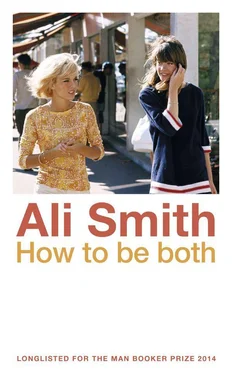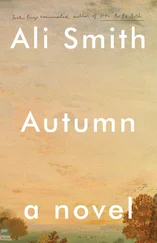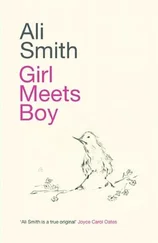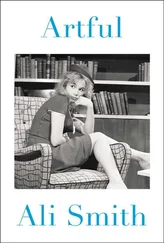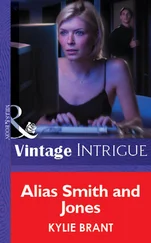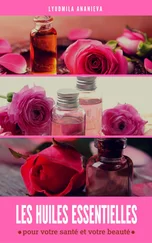I pointed down to my new assistant, the pickpocket, filling the time between plastermaking and colourgrinding by doing the drawing work I’d set him of the pile of bricks I’d made him fetch in from the gardens: I look back at my rich court babies pouring out of the hole in the stony ground into life as if the whole world was nothing but theatre and them its godgiven critics.
Since I was infant I’ve lived, breathed, slept brick and stone, but you can’t eat bricks, you can’t eat stones, Mr de Prisciano, which is why –
(and here I got ready to ask for my money).
— on the contrary, the Falcon said. Best way to get birds to hunt well, no? Is to feed them stones
(cause it’s true that this is what falconers will do to keep a bird hungry and sharp, they’ll fool it into thinking it’s been well fed by giving it pellets of stone so that when the hood is removed and the bird out working it’s surprised by its own hunger which makes it sharper-eyed than ever in finding prey).
But it was a dodge to my question and he knew it, the Falcon: he looked askance, ashamed: he looked to my army of babies instead.
Infantile sophisticates, he said. Bare of everything, seen for what they are. Good. And I like your Apollo. Where’s the lute? Ah. Yes. And I like very much the grace of your minstrels. And — these — oh. What’s this?
The gathering of poets you wanted, I said, in the top corner, as required.
But — is that — isn’t it — me ? he said.
(It was true I’d painted unasked a likeness of him, in with the poets: I sensed he’d prefer to be seen as a poet rather than a scholar.)
What’s that I’m holding? he said.
The heart, I said.
Oh! he said.
And this’ll be, see, here, heat, I said. As if you’re examining a heart off which heat is rising like breath from a mouth on a cold day.
He coloured: then he gave me a wry look.
You’re a politician, Francescho, he said.
No, Mr de Prisciano, I said. A painter, by the work of my arms and hands and eyes and by the worth of the work.
But he turned his back very quick then in case I asked about the money again.
On his way down the ladder backwards he looked back up at me.
Keep it up, he said.
Then he winked.
So to speak, he said.
(One night I came through the curtain over the month room door, it was only midnight, not late, a good damp night and very few others working cause I preferred it when quiet, but as I came down the room I saw by the shadows the swing of a torch up on one of the platforms at the far end of the room: I stayed in the dark by the foot of the scaffolding: the Falcon, I could hear, was somewhere up there speaking to someone –
Veneziano, yes. Piero, certainly. Castagno, maybe some Flems, certainly a bit of Mantegna, Donatello. But as if, your Grace, the work’s soaked itself deep in them all but then washed itself new and clean and come up with a freshness like nothing I’ve ever.
Your Grace .
Yes, the other said. I’m not sure I like the way he’s done my face.
There’s a charm, the Falcon said. A great, I don’t know what else to call it. Likeableness.
Must never underestimate charm, the other said.
Lightness of spirit, the Falcon said. Not got from anyone. Not Piero. Not Flemish.
The women’s clothes are very fine, the other said. But am I well starred throughout? The auspices? And how like the gods? I mean in inference?
Very, your Grace, but very human all the same, the Falcon said. A rare thing, to be able to do gods and humans both, no?
Hm, the other said.
Look at this woman and this child here, just standing, but in such a choreography, the Falcon said. It’s motherhood. But it’s more than motherhood. It’s as if they’re in a conversation, but a conversation made of stance.
And does this particular painter do any more of me? the other said.
Yes, your Grace, the Falcon said
and I heard them move on the platform and I ducked into the shadow of the wall.
Who is he, then, the lad? the other said then as the ladder beneath him creaked.
Not a lad at all, your Grace, the Falcon said.
I held my breath.
— full-fledged painter, well over 30 years, the Falcon said.
What’s his looks like? the other said.
Youthful in demeanour, sir, the Falcon said. Girlish, you might say. Youthful in the work, too. Freshness all through it. Freshness and maturity both.
What’s he called? the other said.
I heard the Falcon tell him –
and not long after, since the Falcon had liked Cosmo’s St Giorgio so much, I figured him into the fresco again, this time in the month of March (the part of the wall my work was at its best), this time as a falconer with his clothes winged up like the falcon on his hand and the torch bearer drawing he’d liked and I sat him on a horse with a stance a bit like Cosmo’s Giorgio: I made him young and vigorous: I gave him a tasselled hunting glove: above all I made the balls on his horse good and large.)
Painting the months took months.
I made things look both close and distant.
In the upper space I gave the unicorns translucent horns.
In the lower space I gave the horses eyes that can follow you round the room, cause those are the God eyes and whoever has them in a painting or fresco holds the eyes of whoever looks at the work, and this is no blasphemy, merely a reasserting of the power of the gaze back at us from outside us always on us.
I painted the differing skies of May and April and lastly March (cause I progressed from May to March and grew more used to the plaster from each to each, which made the work flourish): I dared paint, in Venus’s upper space, with its groups of lovers standing in their 3s, women openly kissed and touched by men (to enrage any visiting Florentines who hate to see such goings-on).
Throughout I did as the great Alberti in his book suggests the best picturemakers should always do and included people of many ages and kinds, plus chickens, ducks, horses, dogs, rabbits, hares, birds of all sorts, all in a lively commerce in and about a variety of landscapes and buildings: and, cause Alberti asks in his book that as a reward for my pains in writing this work, painters who read it might kindly paint my face into their istoria in such a way that it seems pleasant I did this too and painted him into it in the gathering of wise men in the goddess Minerva’s space: cause those who do good work should always be honoured, which is something both the greats Alberti and Cennini agree on. As a symmetric to the wise professors I placed on the other side of Minerva’s chariot, where the Falcon wanted the Fates to sit, a gathering of working women and included every woman’s face I could remember from the streets and workshops and the pleasure houses: I arranged them round a good loom and gave them well-made cavework as a landscape behind them.
I painted my brothers.
I painted the figure of my mother resplendent.
I painted a ram with the look of my father.
In these ways I filled the Marquis’s months with those who had peopled my own on the earth.
But when I did, as can happen when you work to picture someone in paint, as soon as I’d painted them into the skin of the fresco they stopped being the people I knew: this happened especially in the colour blue meant for sky, the place between the gods and the earth.
A picture is most times just picture: but sometimes a picture is more: I looked at the faces in torchlight and I saw they were escapees: they’d broken free from me and from the wall that had made and held them and even from themselves.
I like very much a foot, say, or a hand, coming over the edge and over the frame into the world beyond the picture, cause a picture is a real thing in the world and this shift is a marker of this reality: and I like a figure to shift into that realm between the picture and the world just like I like a body really to be present under painted clothes where something, a breast, a chest, an elbow, a knee, presses up from beneath and brings life to a fabric: I like an angel’s knee particularly, cause holy things are worldly too and it’s not a blasphemy to think so, just a further understanding of the realness of holy things.
Читать дальше
